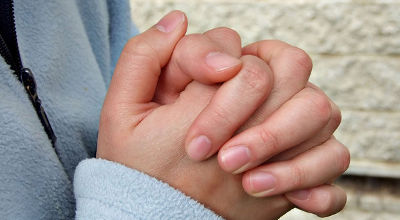Praying for a romantic partner or close friend can lead to more cooperative and forgiving behavior toward the partner, according to a new study co-authored by a Florida State University (FSU) researcher.
The findings are significant because they are the first in which the partners who are the subject of the prayers reported a positive change in the behavior of the person who prayed, says Frank D. Fincham, eminent scholar and director of the Florida State University Family Institute.
“My previous research had shown that those who prayed for their partner reported more pro-social behavior toward their partner, but self-reports are subject to potential biased reporting,” Fincham says. “This set of studies is the very first to use objective indicators to show that prayer changed actual behavior and that this behavior was apparent to the other partner, the subject of the prayer.”
In addition, objective observers found those who engaged in partner-focused prayer exhibited more positive behavior toward their partners compared to those who did not pray for their partner.
Fincham is one of several authors of the study led by Nathanial Lambert, a former FSU doctoral student who is now an assistant professor at Brigham Young University. Their paper, “Shifting Toward Cooperative Tendencies and Forgiveness: How Partner-Focused Prayer Transforms Motivation,” was published in the journal Personal Relationships. In addition to Lambert and Fincham, the co-authors are C. Nathan DeWall and Richard Pond of the University of Kentucky and Steven R. Beach of the University of Georgia.
The paper reports the results of five separate studies designed to find out whether partner-focused prayer shifts individuals toward cooperative behaviors and tendencies both over time and in the immediate aftermath of hurtful behavior. Among the findings:
- Participants who prayed more frequently for their partner were rated as less vengeful in discussing something the partner had done to upset or annoy them.
- The partners of participants who prayed for them noticed more forgiving behavior than the partners of participants who were assigned to set aside time each day to think positive thoughts about them.
- Participants assigned to pray following a partner’s hurtful behavior were more cooperative with their partners compared to participants assigned to engage in thinking about God.
- Participants who prayed for a close-relationship partner on days in which conflict occurred reported higher levels of cooperative tendencies and forgiveness than on days when conflict occurred and they did not pray.
“These findings highlight the potential benefit of using partner-focused prayer, where culturally appropriate, in clinical settings or in relationship education programs,” the researchers wrote.
In addition to informing relationship education and couples therapy for religious clients, the research findings may also help clarify the types of interventions—that is, those that increase cooperation in order to facilitate forgiveness—that might be developed for nonreligious couples, according to the researchers.
Study participants were undergraduate college students who indicated they were comfortable with prayer and praying for others. Further studies need to be conducted with older, more mature or more ethnically diverse couples to ensure that the effects of partner-focused prayer is not limited to young adult relationships, the researchers said.
Until recently, social scientists have stayed away from studying religion, spirituality and especially prayer, Fincham says, despite the fact that some 5 billion people, or about 75 percent of the world’s population, profess some religious faith.
“In the United States, some 90 percent of people say that they pray at least occasionally, and prayer is a form of spiritual activity common to all the Abrahamic traditions, including Judaism, Christianity and Islam, with strong parallels in other religious traditions, such as Buddhism, Hinduism and Shinto,” Fincham says. “Yet we know very little about its role in romantic relationships. This is the first time that objective indicators have documented the impact of prayer in such relationships.”
See an error in this article?
To contact us or to submit an article






















